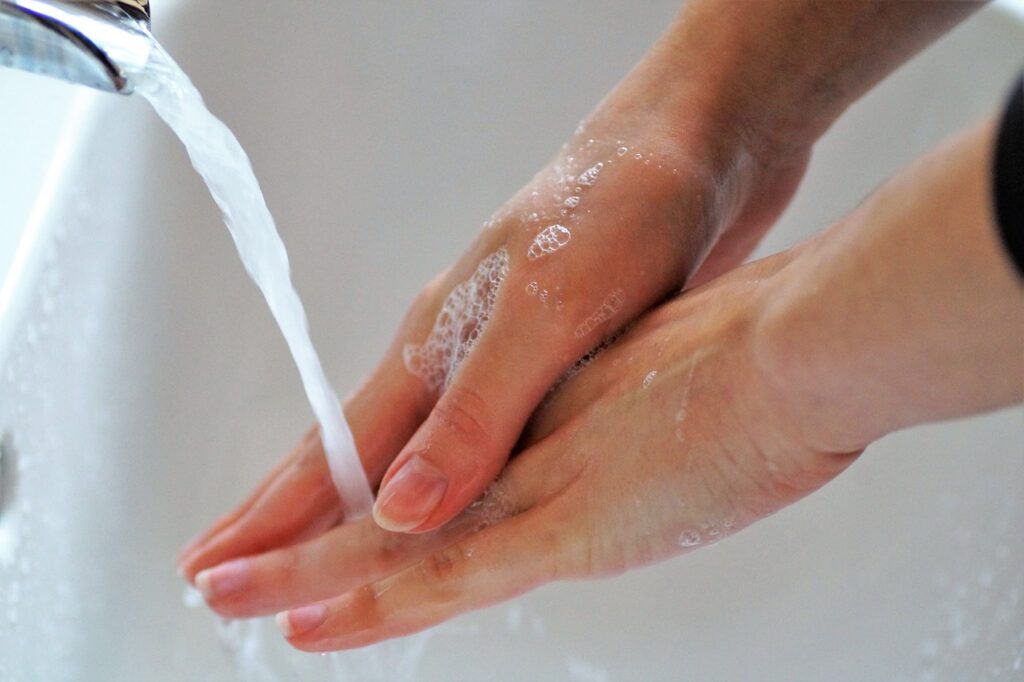
Your Health Magazine
4201 Northview Drive
Suite #102
Bowie, MD 20716
301-805-6805

More Beauty Skin Care & Gorgeous Smiles Articles
Understanding Hard Water’s Impact on Overall Skin Health

Skin health is a topic that resonates with many people, as our skin is often the first thing that others notice about us. Various factors can contribute to the condition of our skin, from genetics to environmental factors, and one often overlooked element is the quality of the water we use in our homes. Hard water, in particular, contains high levels of dissolved minerals, primarily calcium and magnesium, which can have significant implications for skin health. Understanding the effects of hard water can empower individuals to make informed choices about their skin care routines and well-being.
The Composition of Hard Water
Hard water is formed when water percolates through mineral-rich soil and rock, picking up minerals along the way. As a result, it has elevated concentrations of calcium and magnesium ions compared to soft water. These minerals can accumulate in home plumbing systems, appliances, and even within the skin’s surface.
Understanding the composition of hard water is essential in addressing its effects on the body. When we wash our skin with hard water, the minerals can interact with soap, reducing its effectiveness and potentially leading to dry, irritated skin. The residue left behind can irritate skin conditions such as eczema and psoriasis, exacerbating existing issues and making skin care more challenging.
How Hard Water Affects Skin Health
One of the primary concerns with hard water is its impact on skin health. Minerals in hard water can lead to dryness and irritation. When soaps and shampoos react with hard water, they often form soap scum, which can cling to the skin and create a barrier that prevents moisture retention. This can leave the skin feeling tight and dry, which is problematic for individuals with sensitive skin or pre-existing skin conditions.
Hard water can strip the skin of its natural oils, leading to a compromised skin barrier. A healthy skin barrier protects against external irritants and helps maintain skin hydration. When this barrier is weakened due to hard water exposure, it can result in increased sensitivity to environmental factors such as pollution and free radicals.
The Link Between Hard Water and Skin Conditions
Research has shown a strong link between hard water exposure and various skin conditions. Individuals with eczema, dermatitis, and other skin concerns may find their symptoms exacerbated by hard water. The minerals in hard water can change the pH balance of the skin, leading to inflammatory responses and aggravating chronic skin diseases.
In a 2018 study published in the British Journal of Dermatology, researchers found that participants who used hard water showed a higher incidence of skin complaints and inflammation. The effects of hard water on skin are noticeable: many users in hard water areas report dull skin and lifeless hair due to the inability to effectively cleanse and hydrate. Adopting water filtration systems could help mitigate these impacts significantly.
Benefits of Soft Water for Skin Health
Switching to soft water can be highly beneficial for skin health. Soft water, which is treated to remove or reduce hardness minerals, allows for better soap lathering and rinsing, providing a more satisfactory washing experience. As a result, individuals often report feeling cleaner and more refreshed after bathing with soft water. The reduced mineral content means that soaps and shampoos are more effective, leading to enhanced hydration levels in the skin.
With improved moisture retention, skin feels softer and is less prone to irritation. In addition to benefits for the skin, soft water can positively influence conditions related to hair health. Many users report shinier, more manageable hair when switching from hard to soft water.
Hair care products tend to work more effectively, as the lack of mineral buildup prevents residues from accumulating in the hair shaft. The transition to soft water presents numerous advantages for maintaining skin health and cleanliness and comfort.
The Importance of Water Filtration Systems
Using a water filtration system to address hard water issues is crucial for improving both skin and hair health. These systems can remove the excessive minerals responsible for hard water’s adverse effects, thereby ensuring a more skin-friendly washing experience.
By investing in a filtration system, households can significantly reduce mineral content in the water supply and prevent common problems associated with hard water. For those interested in the effects of hard water on hair and skin, exploring filtration options can make a considerable difference in personal care results. Beyond aesthetics, reducing hard water exposure can lead to long-term health benefits. Installing a water filtration system can initially seem costly, but the benefits often outweigh the initial investment.
A cleaner, softer water supply can result in savings, as soft water helps prevent mineral buildup in plumbing and appliances, extending their lifespan. As users experience improved skin and hair health, they may find themselves using fewer products, leading to additional financial savings.

Simple Tips for Managing Hard Water Effects
There are several strategies individuals can adopt to manage the effects of hard water on their skin. Firstly, utilizing specific skincare products designed to counteract the adverse impacts of hard water can be beneficial. Look for hydrating cleansers or creams that contain ingredients like glycerin and hyaluronic acid, as these can help retain moisture and fortify the skin barrier.
Regular exfoliation can play a critical role in improving skin texture and appearance. By removing the buildup of soap scum and dead skin cells, a consistent exfoliation routine can lead to healthier skin.
Incorporating a humidifier in the home can help combat dryness attributed to hard water exposure, creating a more balanced indoor environment.
Becoming proactive in skincare steps can lead to significant improvements despite the challenges posed by hard water. Prioritizing skin health should always be a key focus, and understanding how water quality affects it is pivotal in making informed choices.
Hard water affects skin health in numerous substantial ways. The presence of excess minerals can lead to dryness, irritation, and exacerbation of existing skin conditions. Switching to soft water provides a viable solution for improving skin hydration and health.
Investing in a water filtration system can enhance the bathing experience while promoting better hygiene outcomes. Being mindful of the relationship between water quality and skin health enables individuals to take proactive measures for their skin’s well-being.
Other Articles You May Find of Interest...
- Can Salicylic Acid Effectively Reduce Acne Scars?
- What Causes White Patches on Skin and How to Treat Them?
- Matching the Device to Skin and Hair Types
- Effective Remedies for Dry Skin and Nipple Discomfort
- Unlocking the Benefits of Salicylic Acid for Skin Health
- Effective Solutions for Treating KP Skin for Smooth and Healthy Skin
- Unlocking the Incredible Benefits of Jojoba Oil for Your Health and Beauty














